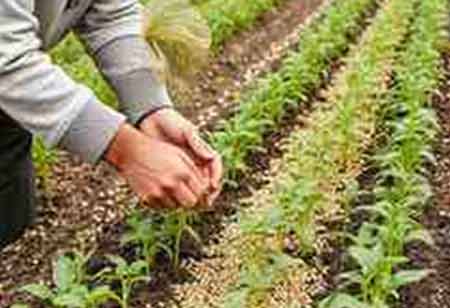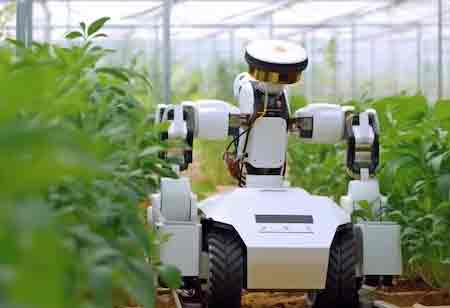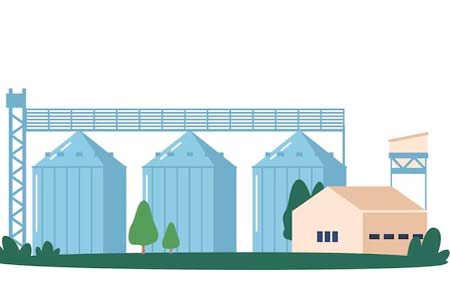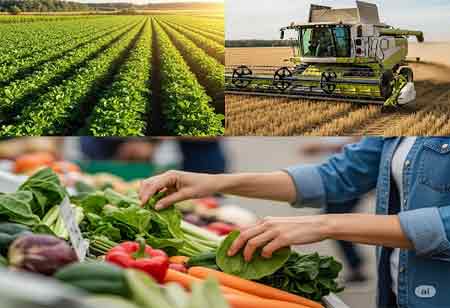Thank you for Subscribing to Agri Business Review Weekly Brief
Genomics in the Agri-Food Economy: Creating Value from Genetic Intelligence in Canada
Canada's agri-food sector is being transformed by genomics, enhancing crop resilience, livestock efficiency, and food safety while driving sustainable practices and creating new economic opportunities.
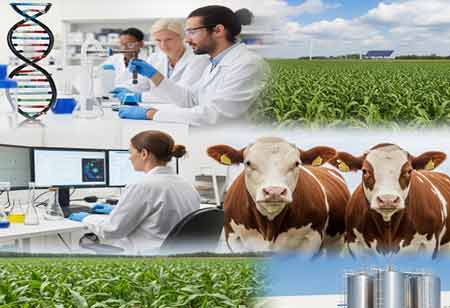
By
Agri Business Review | Tuesday, July 22, 2025
Stay ahead of the industry with exclusive feature stories on the top companies, expert insights and the latest news delivered straight to your inbox. Subscribe today.
Fremont, CA: Canada's agri-food sector, a cornerstone of its economy, is undergoing a transformative shift driven by the rapid advancements in genomics. From cultivating resilient crops to optimizing livestock production and enhancing food safety, genetic intelligence is unlocking unprecedented opportunities for value creation across the entire agri-food supply chain.
Key Applications and Value Creation
Genomics is driving transformative value creation across Canada’s agri-food sector, delivering advancements that enhance productivity, sustainability, and global competitiveness. In crop enhancement and resilience, genomic technologies are enabling the development of new plant varieties that can withstand environmental stresses such as drought, frost, and pests. Canadian research has already led to the commercialization of disease-resistant potato varieties and the identification of DNA markers that strengthen canola’s resistance to adverse conditions—innovations that increase yields, reduce reliance on chemical inputs, and position producers more competitively in international markets. Significant investment is being directed toward broad-acre crops, including pulses and cereals, with a strong focus on applying genomic tools to plant breeding and variety development. In livestock production, genomics is enhancing animal health, growth, feed conversion efficiency, and disease management by identifying genes associated with desirable traits. This precision breeding reduces methane emissions and enhances reproductive efficiency, as seen in recent initiatives in Saskatchewan aimed at advancing beef genetics. Genomics also plays a critical role in food safety and quality by enabling rapid detection of foodborne pathogens, streamlining traceability along supply chains, and supporting improvements in nutritional value and product appeal. Furthermore, genomics underpins sustainable practices and environmental stewardship, driving the development of crops that require less fertilizer, livestock that emit fewer greenhouse gases, and projects that enhance soil carbon sequestration, reduce synthetic inputs, and convert agricultural waste into value-added products. Beyond food production, genomic innovation is expanding into bio-based feedstocks, optimized fermentation for bioenergy, and the creation of eco-friendly biochemicals, thereby opening new revenue streams and fostering a more circular, climate-smart economy.
Strategic Investments and a Collaborative Ecosystem
Canada has demonstrated a strong commitment to genomics research and its application in the agricultural and food sector. Over the past two decades, significant investments from the Government of Canada, alongside provincial governments, industry partners, and research institutions, have fostered a world-class genomics ecosystem. Initiatives like Genome Canada's Genomic Applications Partnership Program (GAPP) and the Climate-Smart Agriculture and Food Systems Initiative are driving late-stage research and development projects that bridge the gap between scientific discovery and real-world impact.
Organizations are channeling substantial funding into genomics and artificial intelligence programs to strengthen the plant-based ingredient supply chain, aiming to unlock a $25 billion industry for Canada. This collaborative approach, spanning the entire value chain from plant breeders to food manufacturers, is crucial for accelerating innovation and commercialization.
Canada's agri-food economy will require a cohesive national strategy, continued investment in large-scale production facilities, robust research and commercial development support, and an agile regulatory process to fully realize the transformative potential of genetic intelligence. By leveraging its world-leading expertise and fostering strong collaborations, Canada is well-positioned to solidify its position as a global leader in sustainable, resilient, and economically vibrant agricultural and food production.

